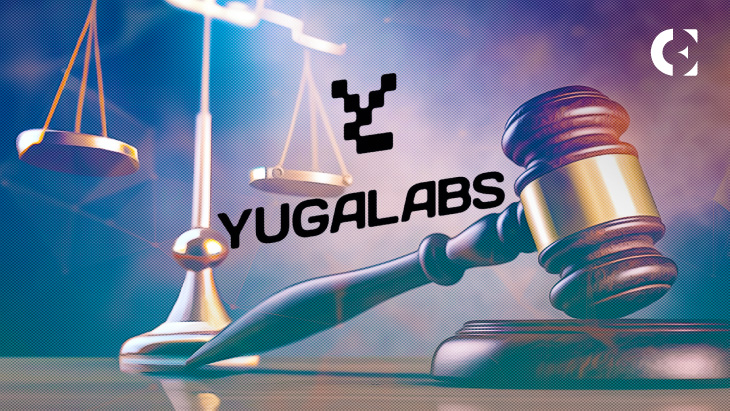- Yuga Labs won a legal dispute against Ryder Ripps and Jeremy Cahen over their satirical NFT collection.
- US District Judge found that Ripps infringed on unregistered marks and engaged in cybersquatting.
- The case underscores the importance of maintaining the authenticity and value of NFTs in the crypto industry.
Yuga Labs, the creator of the Bored Ape Yacht Club (BAYC), has won a legal dispute against Ryder Ripps and Jeremy Cahen regarding their satirical NFT collection, as ruled by a judge in the United States.
On April 21, a ruling was filed by the court granting Yuga Labs injunctive relief and monetary damages in the case. US District Judge John Walter ruled in favor of Yuga Labs in their legal dispute against Ripps and Cahen over their satirical NFT collection. The judge found that Ripps had infringed on unregistered marks and engaged in cybersquatting and that his Ryder Ripps Bored Ape Yacht Club collection was likely to confuse consumers.
However, Yuga’s motion for statutory damages was denied, with damages to be determined at trial. Copyright attorney Jessica Need McDonald called the ruling a “big win” for Yuga, and the case underscores the importance of maintaining the authenticity and value of NFTs in the crypto industry.
In May 2022, Ripps and Cahen designed the RR/BAYC collection, consisting of NFTs that closely resembled Bored Apes. However, Ripps claimed that these NFTs promoted Nazi symbolism.
Meanwhile, in June, Yuga Labs filed a lawsuit against Ripps and his associate, accusing them of developing and promoting “copycat NFTs” that devalued the genuine ones. Yuga claimed that Ripps marketed and sold the collection using the same trademarks as BAYC’s actual creator to confuse consumers and damage Yuga’s reputation. The lawsuit alleged that this was a deliberate attempt to cause confusion and make buyers question whether the RR/BAYC NFTs were legitimately affiliated with the authentic BAYC.
Ripps had tried to block the lawsuit by claiming that his NFTs were a form of appropriation art and were meant as artistic criticism. He also made allegations that Yuga’s BAYC logo and artwork contained Nazi symbolism and racist messaging. In December, Ripps and Cahen claimed that NFTs were unique and could not be replicated.
Disclaimer: The information presented in this article is for informational and educational purposes only. The article does not constitute financial advice or advice of any kind. Coin Edition is not responsible for any losses incurred as a result of the utilization of content, products, or services mentioned. Readers are advised to exercise caution before taking any action related to the company.









